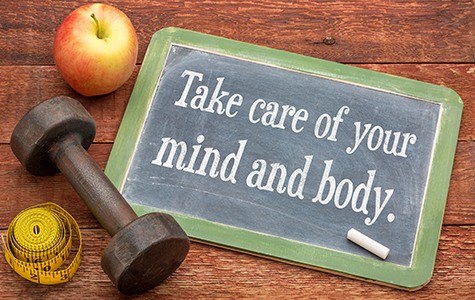 Research continues to show that lack of exercise, poor diet, diabetes, high cholesterol and smoking are important risk factors for dementia. In fact, a recent study of data from the Australia Diabetes, Obesity and Lifestyle Study found that about 48 percent of the cases of dementia in that country were directly related to “modifiable risk factors” – lifestyle choices one can change.
Research continues to show that lack of exercise, poor diet, diabetes, high cholesterol and smoking are important risk factors for dementia. In fact, a recent study of data from the Australia Diabetes, Obesity and Lifestyle Study found that about 48 percent of the cases of dementia in that country were directly related to “modifiable risk factors” – lifestyle choices one can change.
Since dementia has no known cure, healthcare professionals increasingly are focused on helping people prevent the disease or, at least, delay its onset through healthier lifestyle choices.
Dr. Jeffrey Cummings, MD, ScD, Director of Cleveland Clinic Lou Ruvo Center for Brain Health and the Camille and Larry Ruvo Chair for Brain Health states,
“Brain health is the key to our memories, our biography and ourselves. It protects the treasure that has all our friends and family in it. Nothing is more important.”
Cleveland Clinic’s Six Pillars of Brain Health provide easy-to-use guidelines for living a healthier lifestyle. Here’s what you can do:
Get moving.
Physical inactivity was shown to contribute to the greatest proportion of dementia cases in the Australian study. It is a fact that regular exercise lowers your risk for Alzheimer’s disease. Aim for 30 minutes a day of moderate intensity aerobic exercise at least 3-5 days a week.
Eat smart.
Midlife obesity, hypertension and diabetes all contribute to a higher risk for developing dementia. A healthy diet can help prevent or manage these conditions. Try a Mediterranean-style diet rich in fish, whole grains, green leafy vegetables, olives, and nuts. Research has shown it helps to maintain brain health and may reduce the risk of Alzheimer’s disease.
Extinguish smoking.
Smoking puts you at twice the risk for Alzheimer’s disease as that of a nonsmoker. The best thing you can do is quit, or at least cut down with the goal of quitting.
Sleep well.
Getting 6-8 hours of quality sleep is vital to brain health. A good night’s sleep may motivate you to exercise while exercising will improve your sleep.
Take Action.
Motivate yourself to keep learning and to stay social. Take a language class. Invite friends over for dinner. Volunteer. These activities can contribute to your brain health too.
For more on the six pillars of brain health and what you can do to improve the health of your body and brain, visit healthybrains.org/pillars.
For your brain health index score and a customized report on what you can do to improve your health, get a brain check-up – an online self-assessment that tests your memory and helps you make lifestyle choices for a healthier brain. Visit healthybrains.org/brain-check-up.









